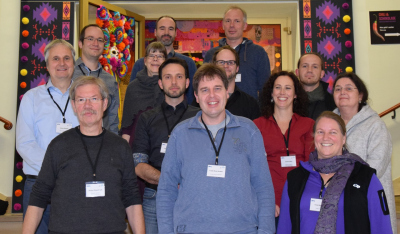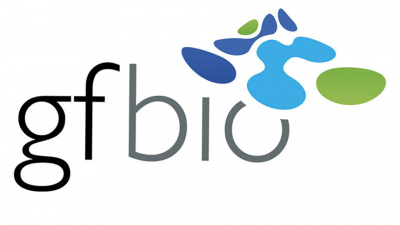- Home
- Discover
- Media Releases
- Media Releases 2018
- funding for GFBio
DFG funds the national contact point for scientific data management through 2021
“GFBio helps to solve a central problem of current research: to make research data accessible over the long term and to enable better science,” says Dr. Michael Diepenbroek, manager of the PANGAEA data center where the GFBio project is coordinated. “We bring together collection, genome, and environmental data. This represents a great potential for science.” Through the search function in the portal almost 5.5 million data entries are already available to scientists for use in their research from the eight affiliated GFBio data centers.
Data from publicly financed research should be widely and freely accessible, both the raw data produced during the research process itself, as well as the metadata, which describe the conditions and procedures that were used to obtain the data. This is where the GFBio project comes in. 19 partners from throughout Germany participate in the project, including universities, museums, and molecular-biological archives. The project participants are committed to the principles of "FAIR Data". In this context, FAIR stands for “Findable, Accessible, Interoperable, and Re-usable”.
GFBio serves as a national contact, information and consulting center for all questions concerning the standardization and management of biological research data throughout the entire life cycle of the data, i.e., from data collection and archiving to publication. During the conception and implementation phase of the project, the data portal www.gfbio.org was created. The third phase, which begins in the summer, will be primarily dedicated to improving the services offered in cooperation with the scientists, and to building a sustainable research-data infrastructure. To furnish this process with a legal structure, the non-profit organization GFBio e.V. was also established.
The total funding amount for the coming three years is 4,370,000 Euros. In MARUM at the University of Bremen the entire project has been coordinated since the beginning of the first funding phase in 2013. This means that the data are published and that environmental data are better connected to molecular data.
Contact:
Dr. Michael Diepenbroek
PANGAEA Manager
GFBio Coordinator
Telephone: 0049 421 218 65590
Email: [Bitte aktivieren Sie Javascript]
Ulrike Prange
MARUM Press and Public Relations
Telephone:. 0049 421 218 65540
Email: [Bitte aktivieren Sie Javascript]
The “German Federation for Biological Data” (GFBio) project has been funded by the German Research Foundation since 2013 and it presently has 19 scientific partners. As an infrastructure, GFBio addresses the research-data management requirements in the areas of biological and environmental data from research institutes, individual researchers, German natural history museums, developers of scientific software, and from large research projects, groups and networks. The services offered by GFBio cover the complete life cycles of data from the collection of raw data to the publication of scientific articles. Additionally, researchers are supported in the preparation of data-management plans, which have become an obligatory part of research proposals in many fields. Here, GFBio acts as a central contact point for the long-term archiving of biological and environmental data. Datasets submitted to the GFBio are deposited in one or more of the eight data centers and linked with one another through so-called “persistent identifiers” (for example, DOIs – “digital object identifier”). In order to ensure the necessary performance of its tasks beyond the project period, the registered non-profit organization GFBio e.V. was established in 2016 as a legal entity and central point of contact.
PANGAEA is operated by the Alfred-Wegener-Institut, Helmholtz-Zentrum für Polar- und Meeresforschung (AWI) and MARUM – Center for Marine and Environmental Sciences at the University of Bremen. PANGAEA is open for any project, institution or individual researcher who uses, archives or publishes data. The PANGAEA information system is an open-access library that archives, publishes and distributes environmental and biodiversity data from Earth-system research. Most of the data, depending on licensing and moratorium restrictions within certain research fields, are openly and freely available.
Using state-of-the-art methods and through participation in international projects, MARUM investigates the role of the ocean in the Earth’s system, particularly with respect to global change. It quantifies the interactions between geological and biological processes in the ocean and contributes to the sustainable use of the oceans. MARUM comprises the DFG Research Centre and the Excellence Cluster “The Oceans in the Earth System”.




